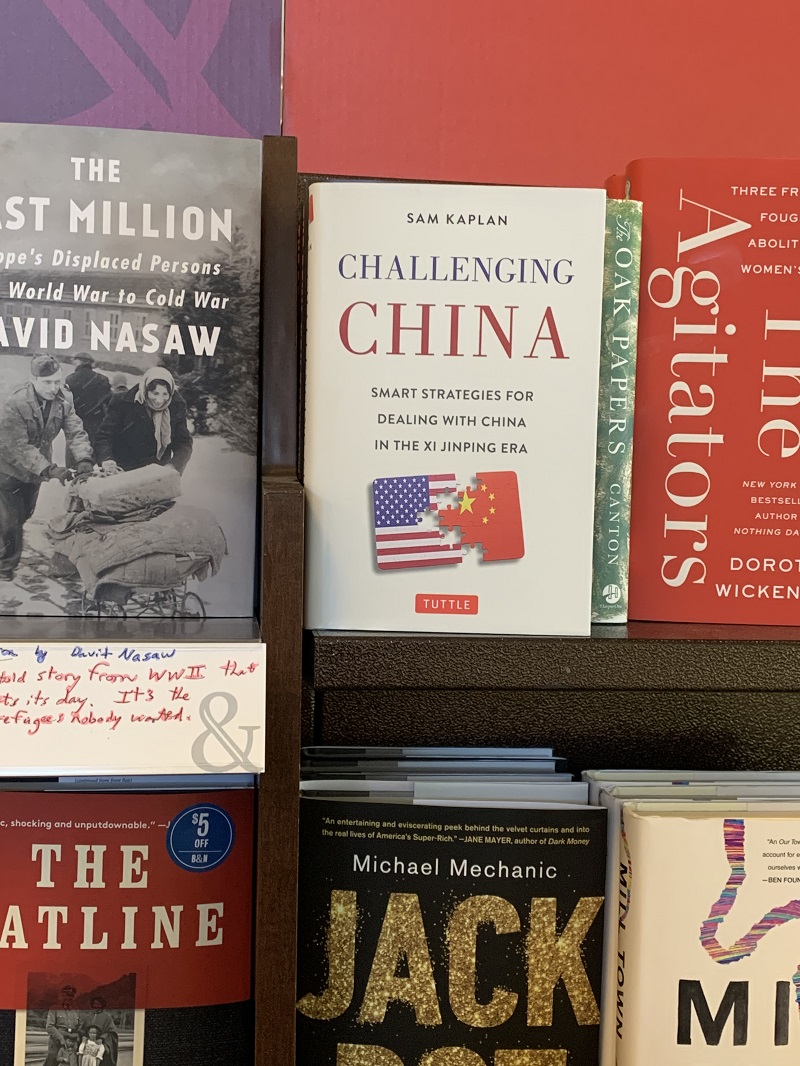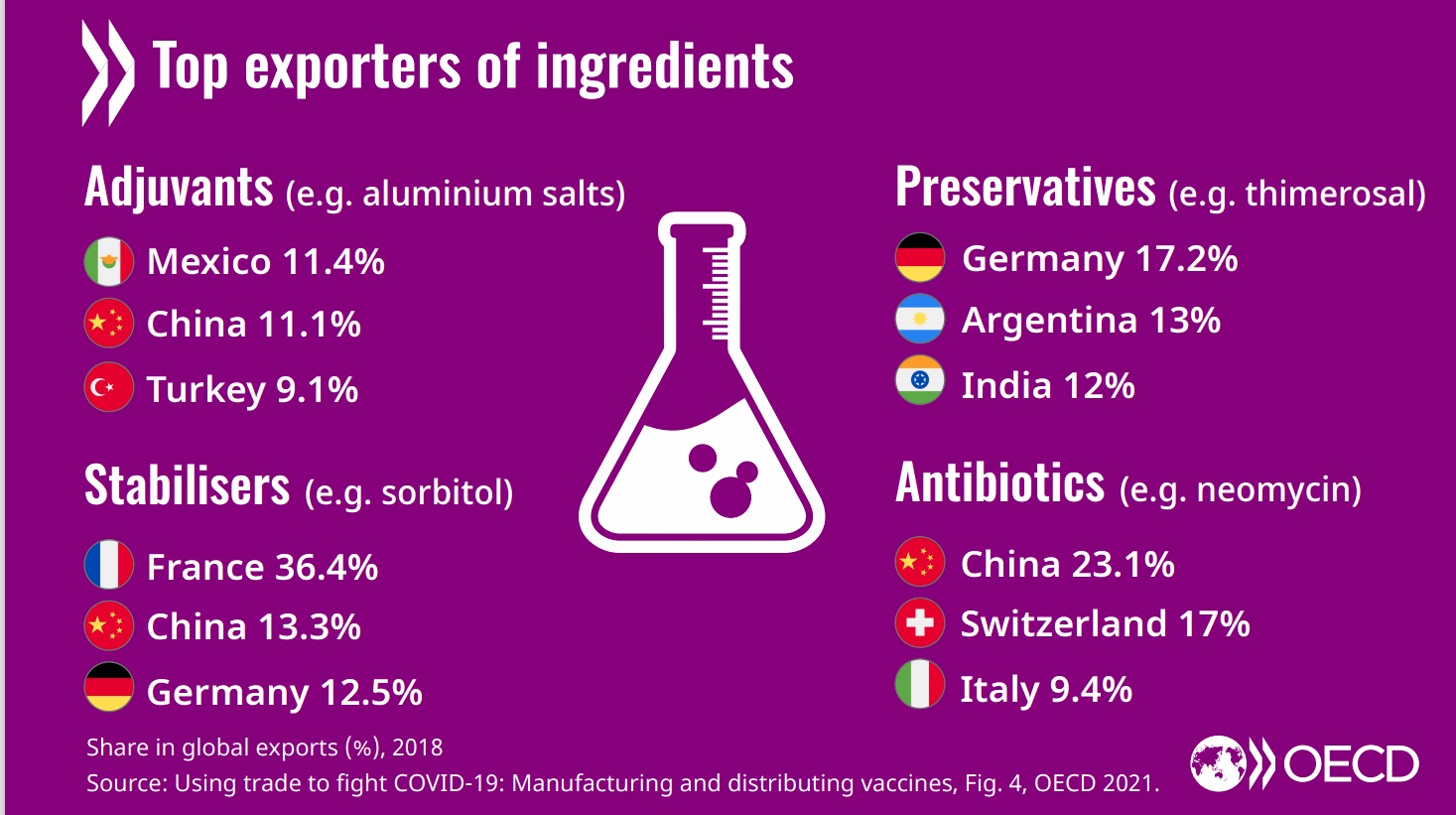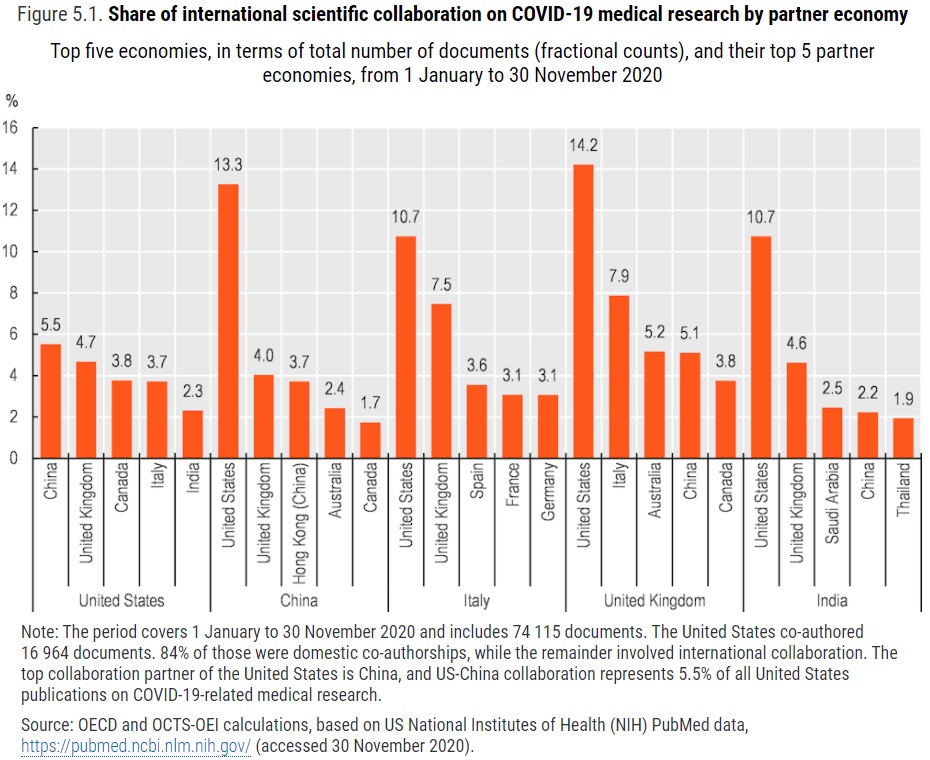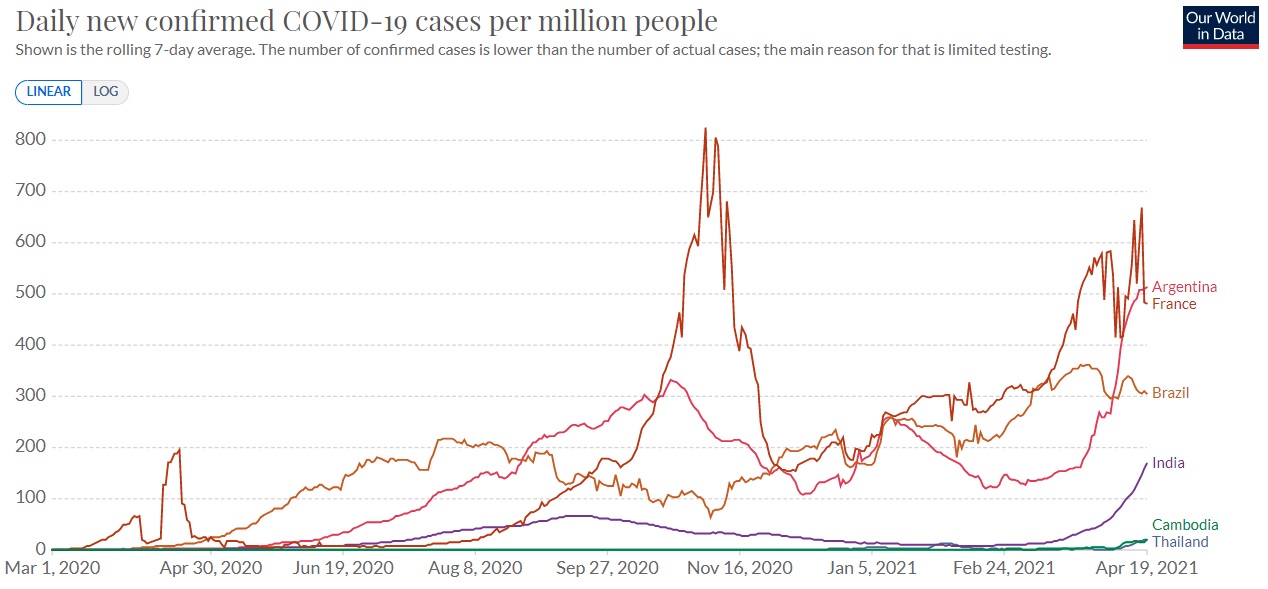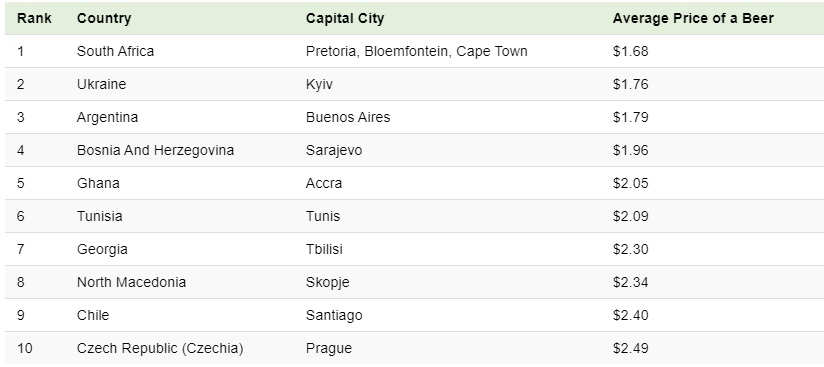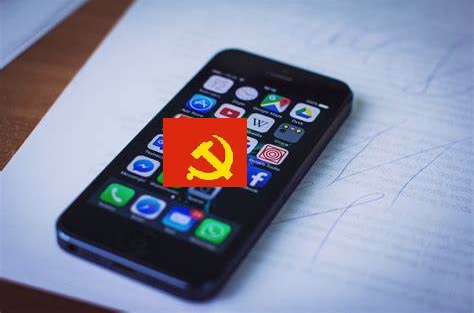In May 2014, we strolled across the fairgrounds of New Orleans on the first day of Jazz Fest—a Thursday, the day reserved for local bands and mainly populated by a local crowd. Coming toward us was a tall man dressed in gold pants, purple jacket, and a million fathoms of dignity: the late, great musician and producer Allen Toussaint. In that moment in the gleaming sun—not a drop of humidity—the grooving sounds of Louisiana music enveloping us–the world seemed perfect.
This week almost feels the same (other than the mass shootings, covid catastrophe in India and China’s continued repression of anything even slightly resembling teen spirit—but stick in my gold and purple world for a just a moment, please). Tomorrow we get our first COVID-19 vaccine dose which will allow us to see live music again come this summer no matter what the communications-impaired CDC says. On Tuesday, our book, Challenging China, was officially released and we had the great pleasure of seeing it on the shelves of a real-life bookstore. Tonight we get to talk about China and our book at a program organized by the World Trade Center and World Affairs Council Tacoma. Next week we’ll be discussing the book with the Christian Science Monitor’s Ann Tyson at a program organized by the great Washington State China Relations Council. This weekend is Festing in Place, a virtual Jazz Fest for these pandemic times. And, our beloved Seattle Mariners demonstrated that they will definitely be going to the World Series this year.
If we had an eighth of the dignity and panache of Allen Toussaint, we’d don gold pants and a purple jacket ourselves this week. Instead, in a dignified way we discuss the global aspect of vaccines, the price of beer and China’s new authoritarian app. It’s this week’s International Need to Know, wishing you a week like ours and thanking all of you who have ordered Challenging China. It is greatly appreciated.
Globalization Made the Vaccines
Like a spouse in the kitchen eying a sink full of dirty dishes, the past year we have been nagging the world that: a) nobody truly escapes the pandemic until we all do; and b) that the complaints and proclamations of the death of globalization because of Covid-19 are more overdone than the pot roast that caused the dirty kitchen in the first place. The U.S. needs to do a much better job of helping the rest of the world vaccinate, and should remember that the miraculously fast development of effective Covid-19 vaccines was due to globalization. We did not develop and produce the vaccines as an island of innovation. The OECD recently illustrated this in an article full of data and graphs. Let’s look at the ingredients for the vaccines, for example. The top exporters of these ingredients, as you see in the OECD infographic below, are remarkably diverse, including Mexico, Turkey, China, Germany, Argentina, India and Switzerland. The second graph below shows the increased scientific collaboration that has occurred on fighting Covid-19, including, believe it or not, between Chinese and American scientists. Globalization, despite claims to the contrary, is more stable than the alternative, and it is playing a huge role in getting us out of the pandemic. We need to double down on it to fully get out of the pandemic.
Bonus Covid-19 Rant: Rich countries are failing the world. With the rapid increase in infections in India and other parts of the developing world, there is a very good chance that more people will die of Covid-19 this year than in 2020. Let that sink in. When we now have vaccines, more people will die than in the year we did not have vaccines. And that is purely a choice. If rich countries, including and especially the United States, chose to spend billions of dollars, we would save trillions of dollars by ending the pandemic…and saving hundreds of thousands of lives. We expected such failures by the Trump administration but we need to hold the Biden administration responsible too, as well as many European countries, Japan and others. The 2021 pandemic is a catastrophic own-goal failure.
The Price of Beer in the World
Tomorrow we finally get our first vaccination shot. Three weeks after that we presume we will get our second dose and three weeks after that, meaning sometime early in June, we can finally return to our favorite beer joint, Chuck’s Hopshop. Maybe we’ll time it with the Where Ya At Matt’s New Orleans-style food truck. Our taste buds drool in excitement. Chuck’s won’t have the cheapest beer in the world, for that you must travel to Cape Town, South Africa where the average price of a beer is only $1.68. Yes, Visual Capitalist has charted the location of the countries with the least expensive beer. Ukraine is second and let’s hope Putin doesn’t make the cost rise with his troops threatening on the border. The full top ten is below. We’ve had the pleasure of downing a stein in three of these countries. With vaccinations imminent, perhaps we will be able to venture to the other seven soon. The Czech Republic, btw, the tenth-cheapest location in the world for beer, also lays claim to the place where beer is consumed the most. We have drank beer there and it was cheap.
China Corner: An App Against “Mistaken” Opinions
If memory serves, the first app we downloaded to our smartphone was one that allowed us to hear people playing a recorder-like instrument all over the world. We could click anywhere on the map and hear a user in Bangor, Maine, Bangladesh or Buenos Aires playing a song. The novelty wore off quickly. But apps have come a long way since then—from inanity to authoritarianism. China launched an app last week that “allows internet users to report those who spread ‘mistaken opinions’ online in order to create a ‘good public opinion atmosphere’.” China is intent on ensuring only the most pristine thoughts—i.e. those sanctioned by the Party and concentrating on Xi Jinping’s thinking—will be expressed on the internet or anywhere else. The Cyberspace Administration of China, in announcing the app, noted that “For a while now, some people with ulterior motives have spread historically nihilistic false statements online, maliciously distorting, slandering and denying party, national and military history in an attempt to confuse people’s thinking.” We’re sure all the Facebook haters in America will quickly download this app.

